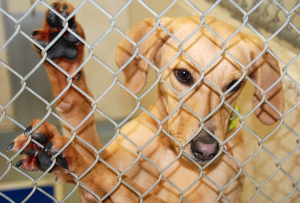
Dogs and cats have long been domesticated – literally, trained to live with us in our ‘domus’. Their human carers are entirely responsible for their welfare.
Dog owners are morally obliged to see that, as natural pack animals related to wolves, dogs are not left alone for long periods, nor expected to behave as ‘little people’. Training dogs – using humane methods – is necessary, as is socialising young dogs with other dogs and with children and cats.
Owners of cats need to protect the local wildlife, and not let their cats remain outdoors in twilight or darkness. Children: research suggests that being responsible for, and loving, pets in childhood helps a person to develop the empathy needed as an adult to relate in a healthy, responsible and sensitive way to other people.
To lessen the numbers of animals being killed or abandoned as strays, it is better to adopt them from rescue centres than to buy them from breeders. Animals deserve to live as close to their natural conditions as possible, so that which pack or herd species (such as dogs and ponies) should not be kept in solitary conditions, nor birds in cages, nor fish in small bowls.
The fashion for exotic pets is cruel and unnecessary, as it prevents basically wild animals from living natural lives with their appropriate range of behaviour.
Not neutering dogs and cats is irresponsible, as it leads to high numbers of mostly unwanted offspring.
Euthanasia can be legitimately and humanely administered with painkillers to alleviate an animal’s sufferings. But this is quite different from ‘putting down’ a healthy animal, which would indeed be cruel and wrong.
According to UK Law, which applies to pet ownership since 6 April 2007, as a companion animal carer, your main welfare responsibilities are as follows:
- you provide them with a suitable place to live
- you give them a suitable and nutritious diet
- you make sure they exhibit normal behaviour patterns
- you ensure they are housed with, or apart from, other animals (as appropriate)
- you protect them from pain, injury, suffering and disease.
The law also states that you must be a minimum of 16 years of age to own a pet. This means, for example, that pets cannot be given as prizes to unaccompanied children. There are also laws on dangerous animals, including dogs.
If you are cruel to an animal or do not provide for its welfare needs you could be banned from owning animals again, fined up to £20,000 or sent to prison.
For further information on the animal welfare law as well as tips and advice on your animal’s welfare you can contact DEFRA:
website – http://www.defra.gov.uk/animalh/welfare/default.htm
phone helpline – 08459 33 55 7708459 33 55 77
email – [email protected]
For further information on this topic go to:


Comments are closed.